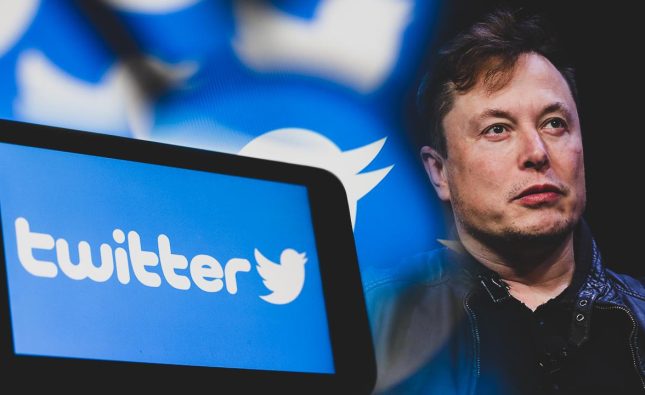
In this age of information overload, it’s easier than ever to access news and opinions from all corners of the globe. However, with the rise of social media and search engines as primary sources for news consumption, a new threat has emerged: fake news and alternative facts. These insidious forms of misinformation have infiltrated American politics, causing chaos and confusion in their wake. In this blog post, we will explore how the internet’s influence on American politics has given birth to a dark side filled with false narratives, propaganda machines, and dangerous conspiracy theories that threaten society’s fabric. So buckle up; it’s going to be a bumpy ride!
What is Fake News?
The Internet has played a significant role in American politics over the past few years. It has allowed people to share information quickly and easily, which has helped to increase the spread of fake news and alternative facts.
Fake news is information that is fake or not true. It can be written for any purpose, including to promote a political agenda or to damage someone’s reputation. Alternative facts are similar to fake news, but they are facts that have been changed or invented in order to support a political agenda.
Both fake news and alternative facts have been used by politicians to win elections and influence public opinion. They have also been used by the media to cover stories in a way that benefits their own interests.
There are many ways that fake news and alternative facts can harm society. They can lead to people believing false information instead of reliable sources of information, which can create chaos in our society. They can also lead people to believe lies about other people, which can damage their reputation and hurt their chances of getting jobs or being accepted into colleges.
How Fake News Spreads
The internet has revolutionized the way people communicate, and its influence on American politics is undeniable. However, the dark side of the internet’s influence on American politics is also undeniable- fake news and alternative facts spread like wildfire on social media platforms like Facebook and Twitter.
In recent years, fake news has become a major problem in American politics. In 2016, Donald Trump won the US Presidential election despite receiving a majority of his support from online sources that were based on fake news stories. The most famous example of this was the “Pizzagate” conspiracy theory, which claimed that Hillary Clinton and her campaign team were running a child trafficking ring out of a Washington DC pizza parlor.
Alternative facts are another common form of fake news. Alternative facts are official statements that are false but are accepted as true by some people because they contradict traditional truths or scientific evidence. For example, President Trump claimed that he had won the popular vote in 2016 even though he lost the overall number of votes by almost two million ballots. Because alternative facts are accepted as true by some people, they can have a huge impact on political decisions made by leaders and politicians.
Fake news and alternative facts have been blamed for causing many political problems in recent years. They have been used to justify hate crimes and terrorism incidents, to promote populist policies that appeal to certain groups of people, and to discredit mainstream news sources. Moreover, they have contributed to a rise in anxiety levels among Americans who worry about the accuracy
The Role of Alternative Facts in Political Discourse
Alternative facts have become an increasing concern in American politics. They are fake news stories that are presented as facts, but are actually false. Alternative facts may be used to support a political agenda or mislead people about important events.
The role of alternative facts in political discourse has been widely debated. Some believe that they play a major role in influencing public opinion. Others argue that they have no impact on the public and are simply used by politicians to sway people their way.
Either way, alternative facts pose a serious threat to democracy. If they can be used to deceive the public, then elected officials can do whatever they want without being held accountable. This could lead to harmful policy decisions that affect everyone in society.
The Impact of False News on the 2020 Election
The impact of false news on the 2020 election has yet to be seen, but if it manages to sway enough votes to help one candidate over another, it could have far-reaching consequences.
False news is not a new phenomenon, but its prevalence on the internet has made it easier for people to spread misinformation. Studies have shown that false news can have a significant impact on public opinion and even political decisions.
For example, a study published in the journal Perspectives on Psychological Science found that exposure to fake news swung the presidential election in favor of Donald Trump. The study showed that overall levels of fake news were not particularly high during the election season, but that stories about Clinton and Sander Jr. were more likely to beFake News than stories about Trump. Stories about Clinton typically contained more factual errors than those about Trump, which made them more likely to be shared and believed by voters.
The study’s authors argue that thisfake news swayed some undecided voters who ultimately decided the results of the election. If similar effects are repeated in future elections, they could have major implications for democracy.
It’s not just U.S. elections that are at risk from fake news; research shows that it can also have an impact on global politics as well. In fact, a recent study conducted by researchers at George Washington University found that alternative facts played a role in influencing Brexit vote results and French presidential election outcomes. Alternative facts refer to information that is contrary to established facts or
Conclusion
As we enter into the 2020 election season, it is important to keep in mind the negative impacts of fake news and alternative facts on American politics. A recent study found that more than 60% of Americans believe fake news is a serious problem, which has led to disastrous consequences for our democracy. Alternative facts are also having a significant impact on how Americans view world events. Together, these phenomena have created an environment where misinformation and lies are easily spread and accepted as truth. We need to take action now to prevent this from happening in future elections, and we need to start by teaching our children about the dangers of false information.










